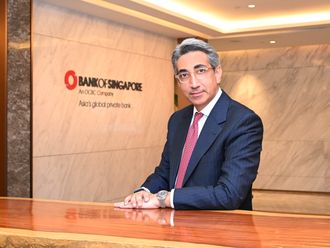Frankfurt : European Central Bank (ECB) President Jean-Claude Trichet will step down next October with the euro area still needing record-low interest rates, say the economists who accurately predicted the region's monetary policy this year.
The Frankfurt-based central bank will keep its key interest rate unchanged throughout 2011 amid low inflation, moderate growth and persisting fallout from the sovereign-debt crisis, said 12 of 17 economists in a Bloomberg News survey. The sample was taken among forecasters who correctly anticipated in January that the ECB's benchmark would stay this year at 1 per cent.
The new year approaches with Trichet celebrating his 68th birthday after leading Europe's response to the turmoil, which at one point threatened to destroy the single currency and has already engulfed Greece and Ireland.
Even after those nations received international bailouts, the cost of insuring Greek debt on Friday rose to its highest in a month and investors speculate that Portugal may be next to require aid. The euro has fallen 8 per cent against the dollar in 2010.
Strategy
"The ECB will be patient, cautious and prudent," said Cedric Thellier, an economist at Natixis in Paris. "Growth will be not very dynamic and inflation will undershoot the ECB's target."
The 17 economists questioned this month participated in a similar survey of 61 forecasters in January on the outlook for ECB policy in 2010. The median forecast then was the benchmark would be at 1.5 percent now with Deutsche Bank and Bank of America Merrill Lynch analysts among those predicting 2 per cent.
The ECB cut its rate to 1 per cent in May 2009 to fight the worst recession in its history. A year later the central bank began buying government bonds for the first time to ease credit-market tensions as investors focused on outsized budget deficits. As recently as this month, the ECB was forced to delay a further withdrawal of unlimited liquidity support to euro-area banks.
Credit ratings
Portugal's credit rating was downgraded on Dec-ember 23 by Fitch Ratings to A+ from AA-. The company said in a separate report the same day that the euro area faces a "systemic" crisis.
The ECB this month forecast growth will slow in 2011 to about 1.4 per cent from this year's 1.7 per cent, while inflation will advance to 1.8 per cent from 1.6 per cent. That's still under the bank's target of just below 2 per cent.
David Owen, chief economist at Jefferies International in London, said the ECB's numbers imply the "weakest growth on record."
Carl Weinberg, chief economist at High Freq-uency Economics in New York, predicts the economy will "lapse into a deep recession, squeezed by a credit crunch and plagued by multiple bank failures".












